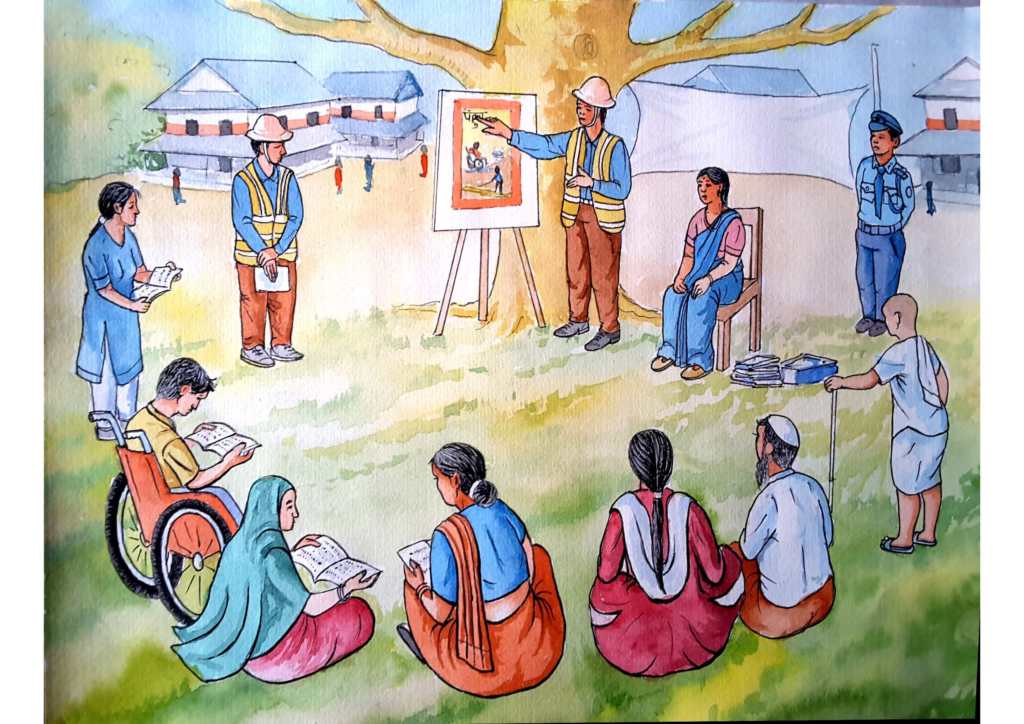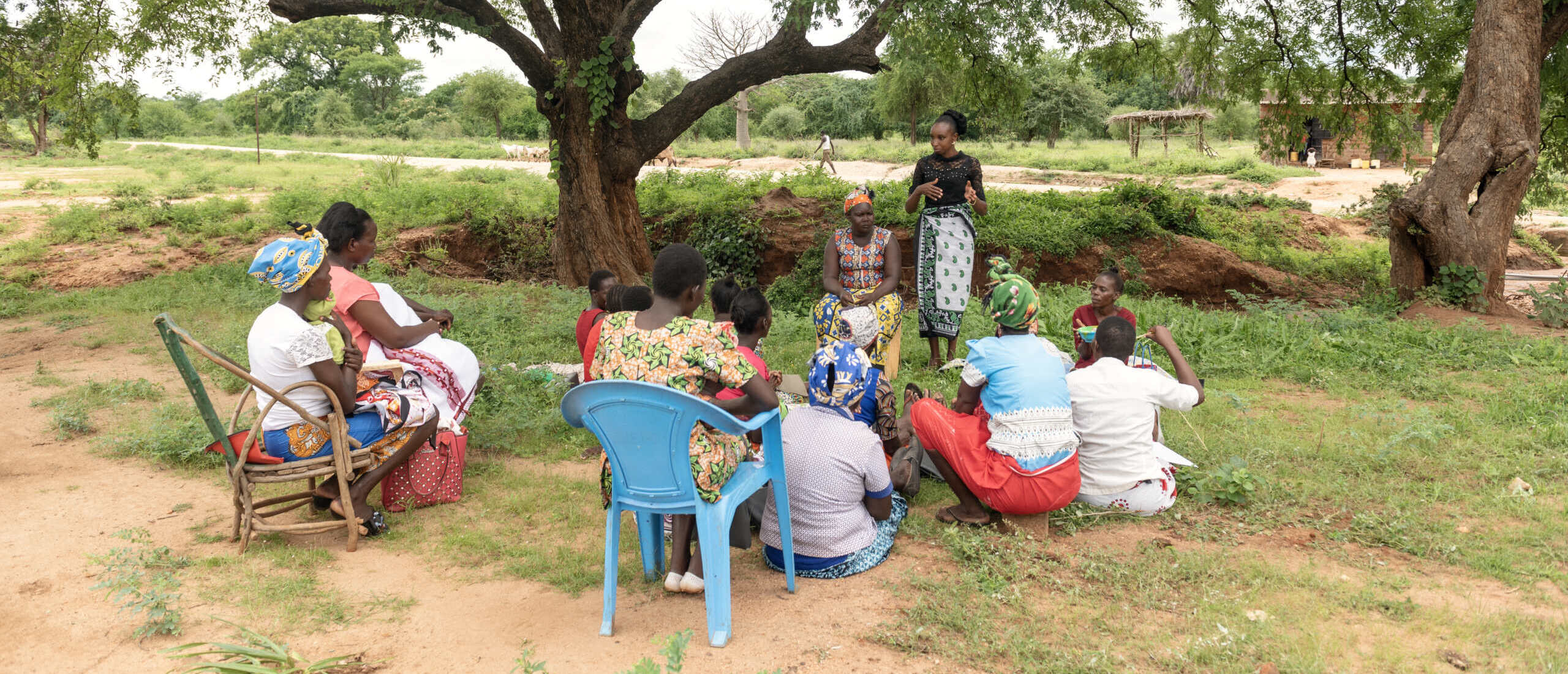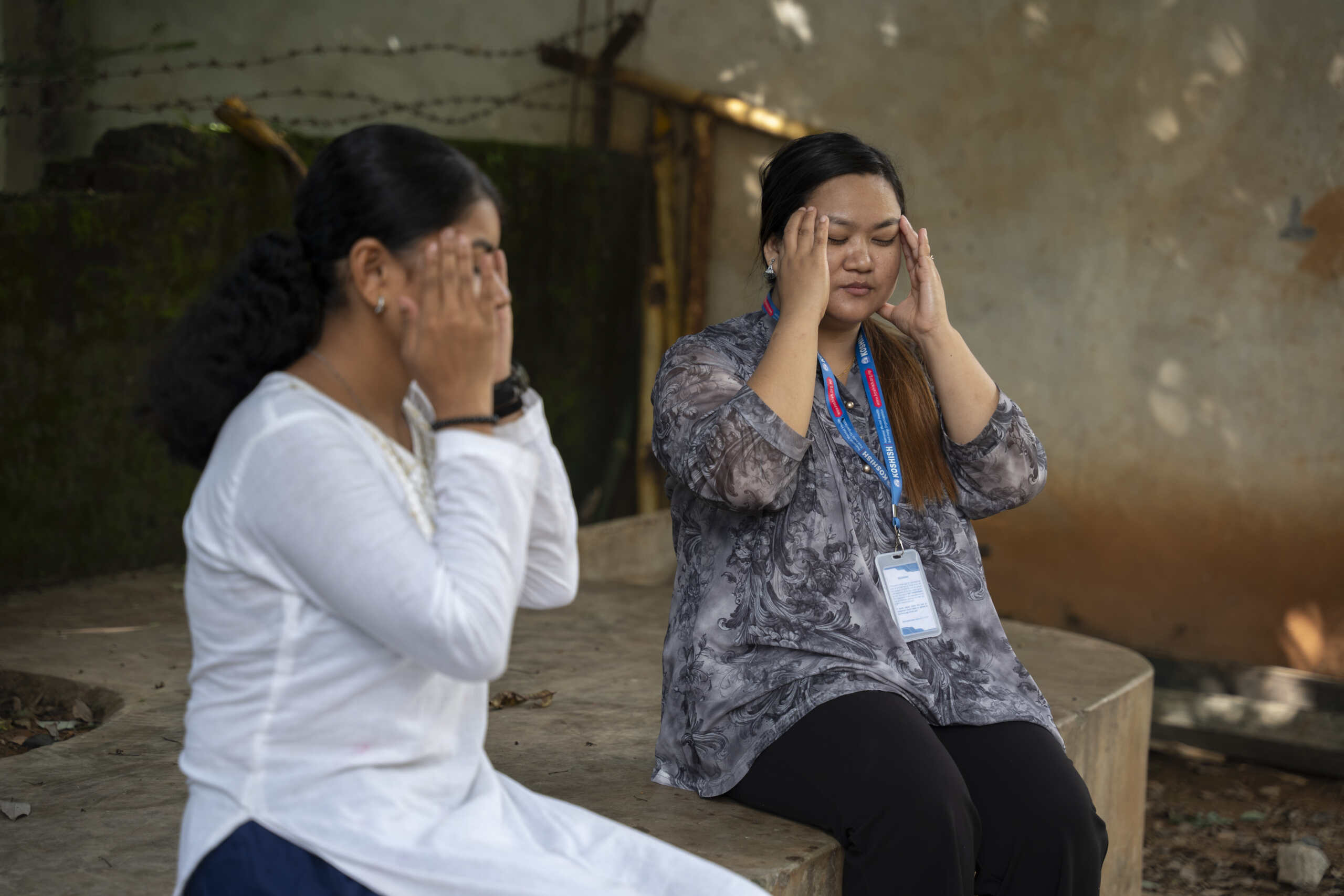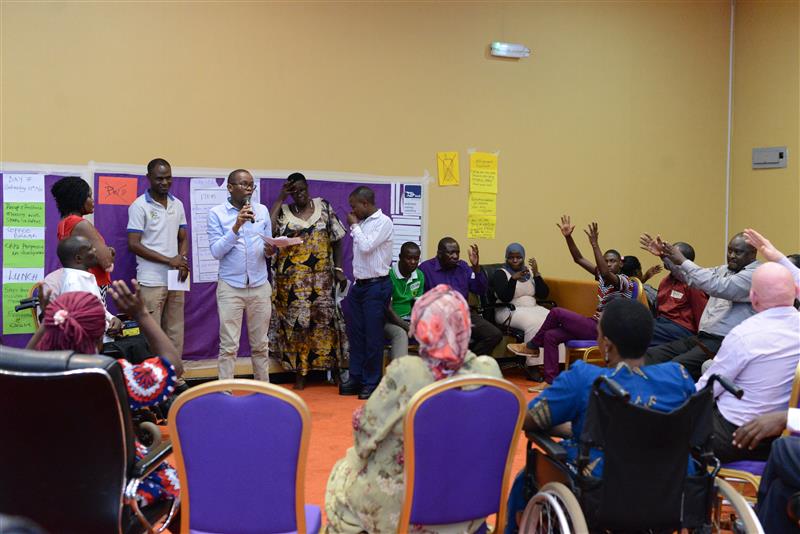Putting inclusion into practice – Inclusion Advisory Group
Blog | September 13, 2022
This blog on putting inclusion into practice – Inclusion Advisory Group relates to our Annual Report 2021.
Inclusion advice is provided under the banner of the Inclusion Advisory Group (IAG). It is a key element in CBM Global’s programming approach, alongside field programmes and advocacy work. IAG is a global network of advisors, working in partnership with the Disability Movement and associates on work at global through to local levels that has the potential to spark broader, systemic change for inclusion.
We believe that tailored advice – communicated effectively, with the right people at the table – can help make inclusion a reality. IAG promotes the implementation of a rights-based approach to disability in development and humanitarian action by supporting our clients to strengthen their policies, systems and capacities on key issues such as accessibility, reasonable accommodation, data, participation, awareness raising, and the role of OPDs.
In 2021, IAG’s work continued to expand across the Federation, drawing from more than a decade of experience providing inclusion advise in Australia. Much of the work was adapted within a COVID-19 context, including a strong emphasis on remote delivery-focused capacity-development resources.
A sample of some of the advisory workpieces from across the federation in 2021 is provided below.
Supporting organisations at a global level
In 2021, we supported numerous global organisations in their efforts towards disability inclusion:
- We began a partnership with the UN World Food Programme (WFP) to ensure disability inclusion is at the heart of their efforts to address food insecurity. This includes the WFP disability inclusion helpdesk through which IAG provides on-demand, tailored technical support to WFP programme staff. In the first six months, 25 helpdesk requests from 12 WFP offices were completed.
- We supported the UN Partnership on the Rights of Persons with Disabilities to develop a country situational analysis tool and multi-stakeholder training package to strengthen the quality of programmes funded under the 4th round of funding. 27 UN Country teams began this process in 2021.
- We are working with UNICEF to produce resources and training materials to support humanitarian and other front-line workers on disability inclusion across their global programmes. This includes practical tools and guidance and the development of videos and related learning resources.
Supporting organisations at a national level
In our collaboration with the Swiss Development Cooperation (SDC), work in 2021 began to sensitise SDC and build the capacity of SDC NGOs partners on disability inclusion.
A long-standing technical partnership with the Australian Department of Foreign Affairs and Trade continued to support the realisation of their disability policy, including a helpdesk and wider capacity development to DFAT and partners.
In Bangladesh, in response to the Rohingya refugee crisis, advisory services have been provided to a wide range of humanitarian actors, including to a consortium of INGOs to improve their capacity to include people with disabilities in their education, protection, WASH, health, and resilience activities.
In Nepal, we continued to support UNICEF in their WASH in health and school facilities project. Together with local OPDs, we provided training to local stakeholders and UNICEF partners, and audited and supported the design of inclusive WASH facilities in 100 schools.

In Indonesia we have supported SurfAID staff’s understanding of disability inclusion through workshops and connections with the local disability movement.
Resources and evidence
A number of resources developed with and for advisory clients were launched in 2021.
- The OHCHR CRPD Policy Guidelines supports governments and other organisations to implement a rights-based, disability-inclusive 2030 agenda. They include specific policy framing on, for example, cross sectoral foundations for inclusion; education; health; poverty reduction; employment and climate change action. IAG helped to support the final tailoring of these resources for the target audience.
- The report Are persons with disabilities included in the effort to leave no-one behind? Mapping Disability Data in Development in the Asia Pacific was produced with UNFPA Asia Pacific to support ongoing advocacy on disability data in the region.
- Based on requests from OPDs, several short resources to aid their engagement in disability data advocacy were prepared with UNFPA Asia Pacific: Questions to aid understanding on disability data and inform advocacy and a Brief Explainer on the Washington Group Questions on Disability.
Advisory clients and partners have provided feedback on our work, including through our OPD Enquiry and an independent assessment of our advisory work. This important feedback helps affirm and refine our approach and commitment to partnering with and supporting the disability movement.
“The key to success of IAG is that it’s not just IAG, it’s IAG and its partners, including people with lived experience, people with geographic and thematic knowledge who broker meaningful and relevant engagement. Without it, it’s not a rights-based approach. It is not what they do it’s how.” – Client of IAG
For more information on the work of the Inclusion Advisory group please see the webpage www.inclusionadvisorygroup.org
https://cbm-global.org/blog/putting-inclusion-into-practice-iag
Related News

What our partners told us and how it shapes our future
One of our strategic priorities as a Federation is to shift power in partnerships....

Breaking Stigma, Building Hope: Suicide Prevention in Nepal
After losing her young daughter to suicide, Maya developed a mental health condition while...

Accessibility, reasonable accommodation, and budgeting for inclusion
Budgeting for inclusion, accessibility, and reasonable accommodation must be...
